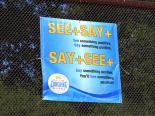Why A Positive Culture Matters When Coaches Come And Go

This resource stems from a question submitted to the Ask PCA blog. Responses come from our experts including PCA Trainers, who lead live group workshops for coaches, parents, administrators and student-athletes.
“We are currently going through a coaching change. As with most coaching changes, there are people that pleased and people that are unhappy. As a PCA committee member for our team, I am looking for articles or information to help parents guide them positively through a coaching change. If you have information on this topic, it would be greatly appreciated.”
PCA Response by PCA Lead Trainer, Joe Terrasi
Thank you for the thoughtful question. This is closely related to the work we do as PCA trainers when we facilitate “Leading Your Organization” workshops. These workshops – and the thoughts I’ll offer here – come down to one incredibly important word: Culture.
I’ll offer a summary of some of our thoughts on culture, then make some comments on how it relates to a coaching change. In a simple nutshell, culture is defined as “the way we do things here.” This is a deceptively nuanced phrase. All organizational cultures are built as a blend of explicit and implicit (or hidden) expectations. In many cases, some of our powerful implicit expectations are actually contrary to the explicit norms or goals we’ve articulated. This gives us two important goals in establishing our cultural norms: We must explicitly articulate what our most critical norms are, and we must fearlessly assess whether some of our implicit norms are at odds with what we really want. It may help to assess the current culture as if you were a brand new family entering the program for the first time.
Download a printable version of this resource, including any additional commentary from PCA, by clicking the PDF below. To read more questions and answers like this, or to submit your own question to the Ask PCA blog, click here.












